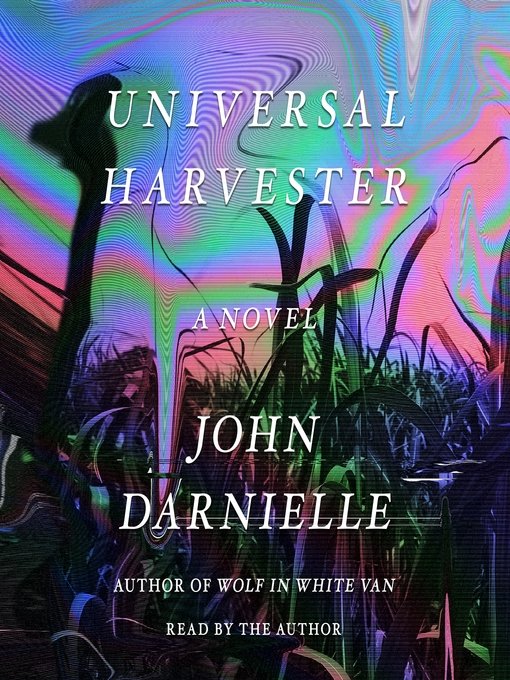
There's something haunting about the countryside. Miles of land stretching on and on, seemingly lonesome but that we can still see the sparse posts of human occupation. Small homes sticking out like sore thumbs, farmhouses standing like outposts guarding against a tamed wilderness that isn't really as safe as we'd like to think it is while powerlines mark the path back to the city. The rural areas of the country remind us of how old the country is, how much has passed through we'd never know.
Those little rurals areas are the perfect place for the story John Darnielle has to tell us in Universal Harvester. A musician best known for his band The Mountain Goats, Darnielle began his literary career with the book Wolf In A White Van in 2014. His second, Universal Harvester was released in February 2017. While I'm unfamiliar with Wolf In A White Van, Universal Harvester is much like Darnielle's music in how well it invokes images of small town life and familiar feelings in its readers. Darnielle's musical work often focuses on a small town feel and in honing in on very human elements of regret, loneliness, and what might have been. These are all elements that find expression in Universal Harvester.
While the story jumps through different periods of time, the majority of our story focuses on a twenty something fellow named Jeremy who works at a small video rental store in 2000. Jeremy is a guy who isn't going anywhere fast and doesn't feel motivated to. The small town he lives in - Nevada, Iowa - doesn't have many opportunities, and Jeremy and his father are still reeling from the loss of his mother in car crash a few winters previously. Jeremy may not be happy with his life and where he's at, but he's content and with where he's at and with his small time job. Unfortunately, this contentment gets interrupted when a customer returns a video, telling Jeremy that someone had inserted an entirely different film into the VHS. Checking the videos out himself, Jeremy finds that someone has inserted scenes composed of darkness and of masked men and woman mulling about in the darkness. They're haunting images, but nothing immediately sinister. It could easily be a prank. But then Jeremy finds that more and more of the videos in the store have had scenes like this inserted into them, and each scene Jeremy finds is more imposing than the last.
Worst of all, Jeremy knows the farmhouse where all these scenes seem to have been filmed. In fact, it's just down one of the roads right outside town.
What follows is an exploration in loss and obsession with that loss. Darnielle introduces us to a cast of characters who all have something missing from their lives and who are desperate not just to fill the hole that has been caused by that loss, but are in some cases only becoming aware of the hole that had been in their lives to begin with. Universal Harvester is rife with this pervasive sense of loneliness, something that is enhanced by the small town and rural setting of the novel. Darnielle's prose is straight forward and easy to read, and is powerful in how direct it is. His vocabulary is straightforward and cutting, and it doesn't feel like a word is wasted in the tale he weaves. His writing echoes the silence and emptiness one would feel in a rural Iowa town.
At its core, Universal Harvester is a traditional ghost story, and there is a specific presence that hovers over the entirety of the novel. The horror of Universal Harvester isn't found in any form of violence as can be found in so much horror media. Violence is in fact mostly absent through the novel; it has little place in the tone of isolation and paranoid fear that so thoroughly pervades the novel. The horror in the novel comes from the perversion of what we think is familiar and safe, and helplessness at watching as secrets we were never meant to know about those places we've known since our childhood come spilling out. Everyplace and everyone has a secret history, and that history is painful and crushing.
Universal Harvester is a ghost story, but the specter that hangs over it is far from some specter or poltergeist. The ghost is the sense of loss that all of us will feel in our life at least once, and the fact that that loss in inevitable and permanent. That is more frightening than any ghost I could imagine.
The image at top for the book/audio book cover was taken from the Toronto Public Library's Overdrive and E-Book Section: toronto.overdrive.com
Thanks for sharing buddy. We will have to discuss this one later, as it sounds pretty darn intriguing. You did a great job at giving the review depth and making one interested in reading. Keep it up!